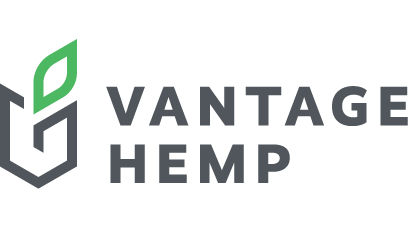
27 Sep How Quality Standards Are Changing the CBD Industry
Hemp-derived Cannabinoids – A New Era
The 2018 Farm Bill succeeded in federally legalizing the cultivation of ‘hemp’ by removing it from DEA (Drug Enforcement Administration) oversight. Under the Federal Food, Drug, and Cosmetic Act and the Public Health Service Act, the FDA has maintained authority and jurisdiction over hemp-derived CBD and the products that contain it. The DEA provided guidance on the definition of hemp in 2020, indicating that hemp is cannabis that contains no more than 0.3% THC (delta-9-tetrahydrocannabinol) by weight.
While the industry and consumers alike are appreciative and optimistic about hemp’s legality, the current legal and regulatory landscapes have allowed for an influx of CBD products with low-quality standards to enter the market. Ongoing ambiguity around the status of CBD in consumer products has led to confusion for both manufacturers and consumers. Inconsistent regulations – or no regulations at all – in individual states have created problems for manufacturers and seriously endangered public health.
US CBD Consumers – Navigating A Landscape of Loopholes
Recent 2022 polling in the US indicates that 60% of adults have tried a CBD product, up from an estimated 18% in 2020. Despite so many consumers using CBD products, to date, there remains only one CBD preparation, Epidiolex, that has been approved by the FDA. Something further to note is that, although the FDA was tasked with enforcing policies, there has been little to no change in federal enforcement. In most states, egregious violations of consumer safety and confidence are occurring with seemingly increasing frequency.
A World of Confusion
Consumers are pulled in every direction regarding CBD; on the one hand, there seem to be ever-greater numbers of credible and reliable reports hailing CBD’s miraculous capabilities as a treatment for any number of injuries and illnesses, a veritable cure-all, really. On the other hand, Canada and the EU have taken positions on CBD that are quite literally diametrically opposed to one another.Canada’s top health regulator, Health Canada, has advised that “CBD is “safe and tolerable” in healthy adults and should be available without a prescription. Taking the opposite approach, the European Food Safety Authority has put evaluating novel food products on hold pending more data. This lack of internationally recognized standards around cultivation, extraction, manufacturing, and sale has led to wildly different levels of quality in end products and outcomes for consumers. At the same time, CBD’s popularity, new prominence in medical research, and hot commercial status have contributed to the growth of the industry and its growing need for quality control standards governing its production and sale.
The Nightmare – Worst-Case Scenarios in Real Time
Consumers must demand uncompromising quality and refuse to settle for less, but they should be able to expect safety and accuracy in the products available to them in the market. Since the passing of the 2018 Farm Bill, the FDA has issued more than sixty warning letters to firms marketing CBD products. While some of those letters order the simple removal of claims from CBD products and marketing, others indicate far more serious issues, including false or improper components and labeling.
One of the worst-case scenarios happened in 2021 when Oregon-based Curaleaf incorrectly labeled both CBD and THC products meaning a significant amount of the intoxicating cannabinoid, THC, was in a formulation intended, labeled, and sold as containing only CBD and vice versa. An error that many agree should have been caught and corrected during production and quality control, without rigorous standards, specifications, and checks it resulted in numerous lawsuits, hospitalizations, and even, allegedly, death.In May 2020, Summitt Labs, an inspected and licensed facility under the Florida Department of Food and Agriculture and Consumer Services, issued a nationwide recall of one of its CBD products due to lead contamination. Lawsuits indicate this is not a one-time occurrence in the industry with products failing laboratory testing for heavy metals, including copper, nickel, lead, and total yeast and mold. Summitt Labs’ recall notes that acute lead poisoning can cause pain, muscle weakness, paresthesia, nausea, weight loss, shock, hemolysis, kidney damage, and other symptoms expected to strike fear in regulators and consumers.
Vantage Hemp Co. Leads via Regulatory Compliance and Operational Transparency
With large-scale extraction facilities that are ICH Q7 and WHO GMP certified, Vantage consistently delivers pharmaceutical-grade CBD extracts that companies can trust with contract manufacturing services that offer a broad range of benefits as they operate with integrity and abide by stringent pharmaceutical-production standards to provide quality products to their partners.Vantage is setting its standards higher because consumer safety and satisfaction depend on clarity and transparency from lawmakers, regulators, and producers. Vantage is dedicated to producing high-quality hemp-derived CBD under existing pharmaceutical regulatory frameworks and processes, as evidenced by its submission of a Drug Master File (DMF) to the FDA for its CBD material and processes. By building on these well-established mechanisms, Vantage has made clear its confidence in the robustness and reproducibility of its processes and procedures, providing the solid foundation clients need when submitting to the FDA for approval of their drug product.

Sorry, the comment form is closed at this time.